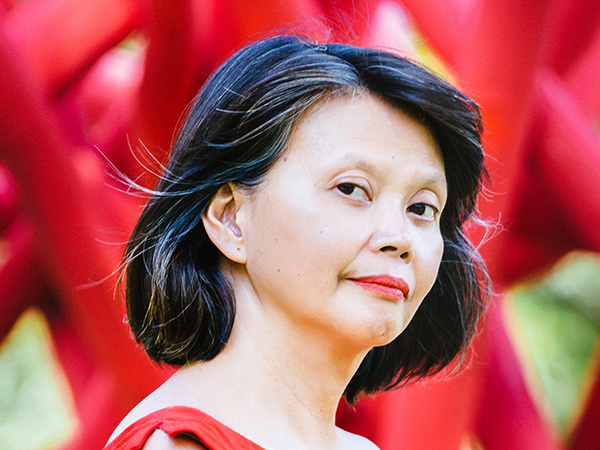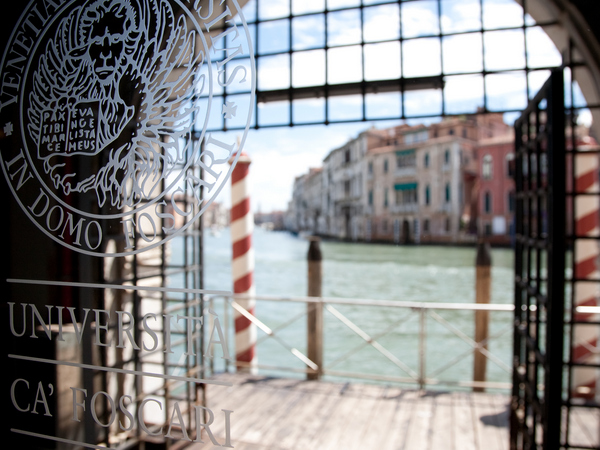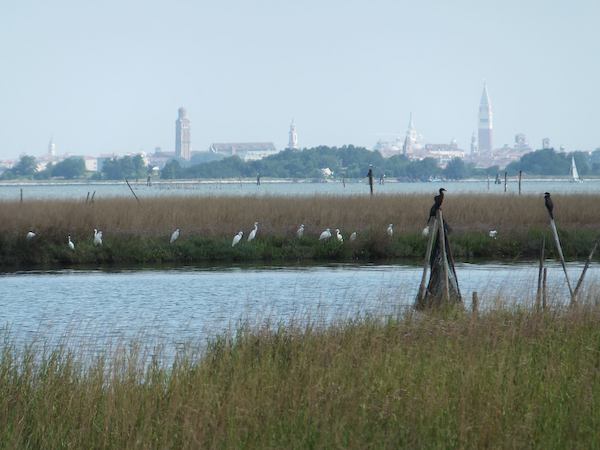On Friday 16 April at 5 p.m, Gina Apostol will be interviewed for MULTINOVEL - Dialogues on the multilingual novel with contemporary authors. MULTINOVEL is a series of dialogues are organised by Ca’ Foscari University of Venice in collaboration with contemporary writers and focuses on the topic of multilingualism in contemporary novels.
The guest of the second interview of the series, in collaboration with Incroci di Civiltà, is Gina Apostol, an acclaimed Filipino-American author whose work has yet to be published in Italian and who has penned "Insurrecto", which Publishers' Weekly listed as one of the Ten Best Books of 2018.
Gina Apostol will engage in an online conversation with the researcher Alessandro Raveggi on the topics that are at the heart of the Multinovel series – the use of various languages in literary narration, the relationship between translation and writing, and the role of translators in colonial and postcolonial contexts.
Gina Apostol’s novels also reflect upon postcolonial topics with great irony and a sense of parody. The author has a strong relationship with Venice and Italy, and her characters are often connected to this country.
The series of interviews has been curated by Alessandro Raveggi, researcher of the Department of Linguistics and Comparative Cultural Studies and author of novels and literary essays. The series contributes to the development of the “Department of Excellence” on topics such as linguistic and cultural diversity, multilingualism and multiculturalism for the wellbeing of people and communities.
Register for the event here.
Upcoming Multinovel events will be announced shortly.
GINA APOSTOL was raised in the Philippines and lives in New York, where she writes novels about revolutions and language, power and translation, storytelling and history. Her most recent work focuses on the Philippine-American war and on narration as a form of invention and liberation.
Her fourth novel, "Insurrecto", was listed by Publishers' Weekly among the Ten Best Books of 2018. Her third book, Gun Dealers' Daughter, won the PEN/Open Book Award in 2013. Her first two novels, "Bibliolepsy" and "The Revolution According to Raymundo Mata", have both won her the Juan Laya Prize for the Novel (Philippine National Book Award).
Her essays and her short stories have been published in the The New York Times, the Los Angeles Review of Books, Foreign Policy, Gettysburg Review, and the Massachusetts Review, among others.
A preview of Gina Apostol’s interview with Alessandro Raveggi is reported below.
From your perspective, to what extent are literature and the national authors of the past relevant to describe the history of the Philippines?
In one of my novels, "The Revolution According to Raymundo Mata", I posit that the Philippines was produced by a novel, Rizal's "Noli Me Tangere"—we're an emblem of modernity (or maybe postmodernity) in that we can trace our nation-making to this anticolonial text written in the colonizer's language—to that ophthalmologist-hero's first novel, for which the Spaniards killed him—his death fired up revolution.
Has this novel defined the meaning of the Philippine nation?
So weirdly, the Great Philippine Novel, "Noli", was already written as the nation was born—so for many writers, Rizal is this albatross, condemning us to nation-making when we are only making art... Because of this history, the novel has a political weight in the Philippines—all novelists are cast in Rizal's shadow. This is both a problem and opportunity, and so yes, our past with Rizal has made literature and national authors keyed to a sense of history. For many artists, actually, it's an annoying cross to bear.
What is the value of multilingualism - that you use in your novels - for this idea of identity?
One way to put it is that Filipinos exist in translation. We are always moving in the interstices of our various speech-selves. Geography, power, and history cast us into multilinguality—Filipinos are archipelagic, the country has over 7000 islands, and on those islands people speak around 120 languages. Plus, our official governing languages have been Spanish (1521-1898)—then with American occupation (1898-1946) English. Because the government is ensconced in Manila, Tagalog, that city's language, is our textual, official "Filipino" language. On my island alone, Leyte, we northerners speak Waray, but in the south they speak Cebuano—and there are variants in those languages that further identify your hometown.
So, does translation have a political value for you?
Tagalog is a colonizer language, for us. I imagine many Italians understand these variants of speech that signify place, sometimes power. In school we learn in English, but the law also requires we learn Tagalog, and in my high school we had to do a year of Spanish. I live, I breathe in Waray, which is hugely inflected with the Spanish, by the way, but I have always written in English. One might say, I have always translated myself—but there is an unreality in that: I simply exist in the many languages I speak. So it is not so much that translation is a value. It's just a fact of life.
You have a special link with the city of Venice and Italy. Tell me more about your relationship and the (imaginary or real) role of the city for you.
My link really has been with Italy. My husband was part Italian—his name was Tangherlini, from Sirolo, in Le Marche. He loved Italy—he studied Italian History and Literature at Harvard under a man with an amazing name—Dante Della Terza. I think that name just sounds mythical. Anyway, when he died, my daughter and I kept going to Italy. We have friends there, in Le Marche. I think in my novels, Italy has been a pull because it, too, oddly like the Philippines, has a modern history as a nation. It often surprises me how much Italy is a construction, a construction of late modernity. Also, there's the weird medieval Catholicism everywhere I go that makes me strangely comfortable in it. It's also a country of cities and towns that adamantly believe they are separate selves, for some reason, and I love this sense of fragment, therefore, that I see in Italy. My husband, for some reason, hated Venice. He loved Florence. So I finally visited Venice on my own only a few years ago because of a writing residency I had—through the Emily Harvey Foundation. I lived in San Polo by the bridge and the fish market. And I've been returning to Venice since. I think, for me, Venice is a city of art, above all—but it is a city I understand—it is a mixed city, a city that is too many things at once and yet imagines it is a self. It imagines it is a unity but in fact it is a multiplicity—it seems to me also Arabic and Slavic and Asiatic and it has all of that mercantile coldness that I like about New York City.
New York is your home now...
I love New York because it does not care about me. I mean, Venice is a thief of cultures and makes no bones about it, therefore its image-making is absolutely superb. Like New York, there is something cold about Venice. I like cities in which I can be myself precisely because that city's sense of self is inviolate: precisely because, in many ways, the city has given itself so flagrantly to others its secret seems to be known to everyone. But that is a mistake the visitor will make: because of course, like all good strangers, we will never know a city except by its false selves. That, by the way, is a healthy way to approach reality. It's a way, under colonization, one survives. Regarding my current art—I am fascinated by the storytelling of Tintoretto—he tells stories awkwardly, askew—and yet he is canonical, of a tradition and convention. I am trying to figure out how to write a novel right now that is canonical in its plot but askew in what it centers. Tintoretto, for me, paints like a crazy novelist. So I'm studying Tintoretto as a narrator right now—or at least that is my current excuse to keep going to Venice.
Will Italy or Venice perhaps influence your future art?
Regarding my current art—I am fascinated by the storytelling of Tintoretto—he tells stories awkwardly, askew—and yet he is canonical, of a tradition and convention. I am trying to figure out how to write a novel right now that is canonical in its plot but askew in what it centers. Tintoretto, for me, paints like a crazy novelist. So I'm studying Tintoretto as a narrator right now—or at least that is my current excuse to keep going to Venice.











